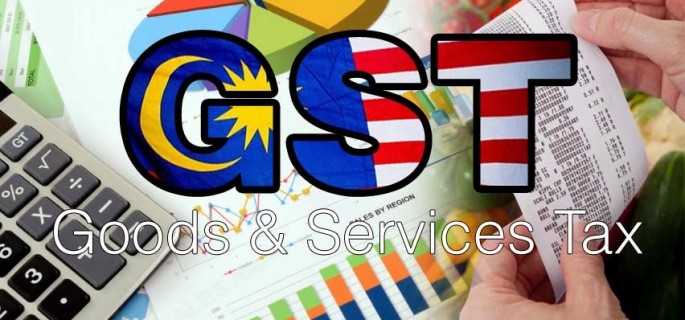The Ultimate Guide to Streamlining the GST Enrollment Process and Requirements for Small Company Owners

Understanding GST Fundamentals
To comprehend the principles of the Goods and Services Tax (GST) system, local business proprietors need to initially comprehend its underlying ramifications and principles. GST is a value-added tax imposed on the majority of items and solutions for residential usage. It aims to improve the tax process by replacing numerous indirect tax obligations enforced by the state and main governments. Under the GST program, companies are needed to gather and sign up tax obligation in support of the federal government, making certain openness and compliance.
One of the vital concepts of GST is input tax credit scores, which permits companies to assert credit history for tax obligations paid on their acquisitions. Understanding these standard concepts is important for small business owners to browse the intricacies of the GST system and ensure compliance with the regulation.
Qualification Requirements for Registration
Having actually developed a fundamental understanding of GST principles, little organization owners have to now fulfill specific eligibility requirements to wage the enrollment procedure. In India, entities took part in the supply of goods or services with a yearly accumulation turn over exceeding Rs. 40 lakhs (Rs. 10 lakhs for special classification states) are needed to register for GST. Furthermore, particular organizations such as those associated with inter-state supply of items, laid-back taxed persons, and those required to pay tax under the reverse cost device have to sign up for GST irrespective of their turnover. Furthermore, organizations that were signed up under the previous tax obligation program (VAT, solution tax, etc) are additionally mandated to sign up under GST. Nonetheless, farming companies that only provide create out of primary manufacturing are exempt from GST registration. It is critical for company owners to very carefully examine their eligibility based on these standards to ensure conformity with the legislation and prevent any fines for non-compliance.
Papers Required for GST Enrollment

Simplified Registration Process Steps
Following the collection and verification of the requisite files, the registration process for GST can be browsed via a collection of simplified steps designed to assist in efficient conformity for tiny organization proprietors. The primary step involves checking out the GST website and choosing the 'New Enrollment' choice. Subsequently, the applicant should complete Part A of the GST REG-01 kind with details such as PAN, mobile number, and email address to acquire an OTP for confirmation. When the OTP is gotten and gotten in, a Short-term Referral Number (TRN) is generated for more process. The following action calls for filling out Part B of the form with needed service information, posting supporting papers, and finishing the verification process utilizing DSC or EVC. Finally, upon effective confirmation, an Application Reference Number (ARN) is released, indicating the completion of the GST enrollment procedure. By complying with these streamlined actions, small company proprietors can properly register for GST and make sure compliance with tax obligation policies.
Tips for Ensuring Conformity
To maintain regulatory adherence and functional stability, persistent oversight and proactive measures are critical in guaranteeing compliance with GST demands for small company proprietors. Small company owners should remain upgraded with GST laws, filing due dates, and any type of adjustments in tax obligation prices to prevent fines and keep a good standing with tax authorities. One essential idea for conformity is to keep his response comprehensive and exact documents of all transactions, consisting of invoices, billings, and costs associated with GST. Frequently resolving economic documents with GST returns can assist in determining and remedying any type of disparities quickly. Furthermore, performing periodic interior audits or seeking expert aid can guarantee that business is following all GST rules correctly. It is also crucial for small company owners to purchase GST-compliant audit software program that can enhance the tax filing process and decrease errors. Participating in GST awareness workshops or training programs can enhance understanding and conformity with GST regulations, inevitably profiting the company in the lengthy run.
Final Thought
To conclude, small company proprietors have to understand the essentials of GST, satisfy the eligibility requirements, collect essential documents, and adhere to the streamlined registration procedure steps to guarantee conformity. By simplifying the GST enrollment process and needs, small company proprietors can prevent penalties and run their organizations smoothly within the lawful framework - Singapore GST Registration. It is important for small company owners to stay educated and certified with GST regulations to maintain a successful business procedure
Little service proprietors looking for GST registration need to ensure they gather and submit the required documents to finish the registration process effectively. The files needed for GST enrollment normally include proof of organization enrollment or unification, PAN (Irreversible Account Number) card of the company address, identification and entity proof of the promoters/partners/directors, photos, address proof of the location of service, financial institution account statements or canceled view publisher site cheques, and consent types. Participating in GST recognition workshops or training programs can improve understanding and compliance with GST laws, eventually benefiting the organization in the long run.
By simplifying the GST enrollment process and demands, small organization proprietors can stay clear of penalties and run their companies smoothly within the lawful structure. It is important for small service owners to stay certified and educated with GST regulations to keep an effective service procedure.